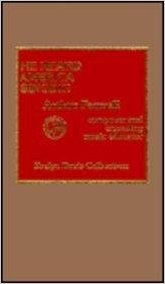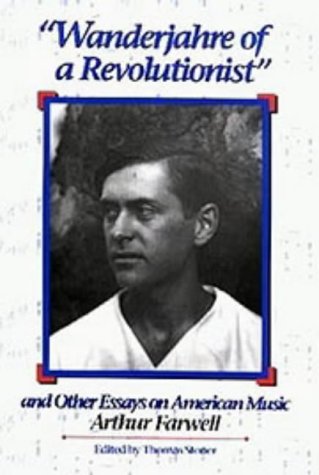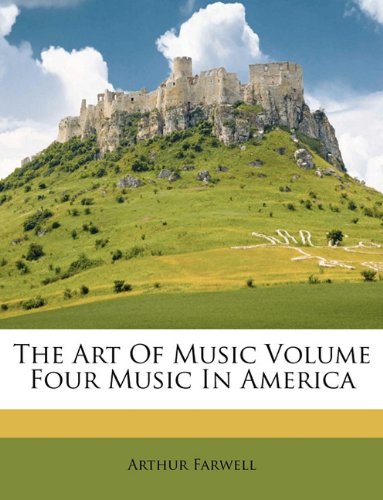Audio
Track:
About
Born in St. Paul, Minnesota, on April 23, 1872, Farwell studied violin as a boy, but it was not until he was an engineering student at the Massachusetts Institute of Technology that he realized his vocation. Taking his degree in 1893, he studied for a time with Chadwick in Boston, but rebelled against his teacher’s academic drift. Encouraged by MacDowell, he sailed for Germany, where he studied with Humperdinck, among others, before returning to the States, teaching briefly at Cornell University, and eventually settling in Newton Center near Boston. Inspired by Dvořák’s approach to folk material, and impassioned by the belief that American classical music needed to incorporate native music, Farwell created in 1901 the Wa-Wan Press, which he named for an Omaha tribal ceremony affirming peace and friendship.
Published eight times annually for the first five years and then increased to monthly editions in 1906, Farwell published beautifully designed and engraved vocal and instrumental compositions supported by program notes and essays to advance the cause of this “new music.” Among the composers he published (in addition to himself) were Arthur Shepherd, Edgar Stillman Kelley, William Schuyler, and Henry F. B. Gilbert–all of whom had rejected the classicism of the Chadwick-Parker School. In 1912 Farwell became chief music critic for the Boston area for Musical America, and he turned the plates for the Wa-Wan Press over to G. Schirmer on a royalty basis. Unfortunately, Schirmer soon abandoned the project, and one of the most significant and idealistic efforts in our cultural history–an attempt to encourage American voices by publishing and disseminating their songs and poetry–disappeared. It is much to their credit, therefore, that Arno Press and the New York Times, with Vera Brodsky Lawrence as editor, issued a complete five-volume reprint in 1970.
Farwell’s own music was deeply inspired by the Indianist Movement of the late 19th century. Though his arrangements of tribal melodies (Three Indian Songs, op. 32, 1908) were colored by European harmonic practices, his later compositions departed boldly from the literal context of Native American music and responded, instead, to its spirit. This increasing sophistication is seen in his 1905 op. 21, Impressions of the Wa-Wan Ceremony of the Omahas.
By the 1930’s, Farwell’s music had developed a strikingly original, even avant-garde quality that continued until his death in 1952, in New York City. A figure of controversy throughout his life, Farwell’s artistic ideas–particularly his work in the Indianist Movement–still provoke discussion in a politically correct and largely myopic modern age that has difficulty understanding the contexts from which our artists come. Arthur Farwell’s credo, with all its Whitmanesque resonance–that it is only by exalting the common inspirations of American life that we can become great musically–surely stands at the heart of the pioneering spirit which has shaped all American thought and art.
–Thomas Hampson and Carla Maria Verdino-Süllwold, PBS I Hear America Singing
Photo: Arthur Farwell, [date unknown]. Performing Arts Reading Room, Library of Congress.
Related Information
Songs
10 Emily Dickinson Songs, Op. 108
Song CollectionArthur Farwell
Emily Dickinson
12 Emily Dickinson Songs, Op. 105
Song CollectionArthur Farwell
Emily Dickinson
A Dawn Song (op. 69, no. 2)
Arthur Farwell
Charles O. Roos
Afternoon on a Hill
John Woods Duke
Edna St. Vincent Millay
Ample Make This Bed (op. 108, no. 7)
Emily Dickinson
Song Collection: 10 Emily Dickinson Songs, Op. 108
Aristocracy (op. 105, no. 8)
Arthur Farwell
Emily Dickinson
Song Collection: 12 Emily Dickinson Songs, Op. 105
As If the Sea (op. 101, no. 3)
Arthur Farwell
Emily Dickinson
Song Collection: Four Emily Dickinson Songs, Op. 101
Dark Her Lodge Door (op. 69, no. 3)
Arthur Farwell
Charles O. Roos
Folk Songs of the West and South, Op. 19
Song CollectionArthur Farwell
Four Emily Dickinson Songs, Op. 101
Song CollectionArthur Farwell
Emily Dickinson
Good Morning, Midnight (op. 101, no. 4)
Arthur Farwell
Emily Dickinson
Song Collection: Four Emily Dickinson Songs, Op. 101
I'm Nobody (op. 108, no. 8)
Arthur Farwell
Emily Dickinson
Song Collection: 10 Emily Dickinson Songs, Op. 108
Inketunga's Thunder Song
Arthur Farwell
Arthur Farwell
Song Collection: Three Indian Songs, Op. 32
Papa Above! (from op. 108)
Arthur Farwell
Emily Dickinson
Song Collection: 10 Emily Dickinson Songs, Op. 108
Presentiment (op. 105, no. 12)
Arthur Farwell
Emily Dickinson
Song Collection: 12 Emily Dickinson Songs, Op. 105
Safe in Their Alabaster Chambers (op. 105, no. 2)
Arthur Farwell
Emily Dickinson
Song Collection: 12 Emily Dickinson Songs, Op. 105
Savior! (op. 101, no. 1)
Arthur Farwell
Emily Dickinson
Song Collection: Four Emily Dickinson Songs, Op. 101
Song of the Deathless Voice
Arthur Farwell
Arthur Farwell
Song Collection: Three Indian Songs, Op. 32
Summer's Armies (op. 105, no. 9)
Arthur Farwell
Emily Dickinson
Song Collection: 12 Emily Dickinson Songs, Op. 105
Tie The Strings To My Life (op. 107, no. 2)
Arthur Farwell
Emily Dickinson
The Butterfly (op. 108, no. 2)
Arthur Farwell
Emily Dickinson
Song Collection: 10 Emily Dickinson Songs, Op. 108
The Grass So Little Has To Do (op. 112, no. 2)
Arthur Farwell
Emily Dickinson
The Level Bee (op. 105, no. 10)
Arthur Farwell
Emily Dickinson
Song Collection: 12 Emily Dickinson Songs, Op. 105
The Old Man's Love Song
Arthur Farwell
Arthur Farwell
Song Collection: Three Indian Songs, Op. 32
The Ravens Are Singing (op. 69, no. 1)
Arthur Farwell
Charles O. Roos
Three Indian Songs, Op. 32
Song CollectionArthur Farwell
Arthur Farwell
Unto Me (op. 101, no. 2)
Arthur Farwell
Emily Dickinson
Song Collection: Four Emily Dickinson Songs, Op. 101
Wild Nights — Wild Nights! (op. 112, no. 1)
Arthur Farwell
Emily Dickinson
Recordings
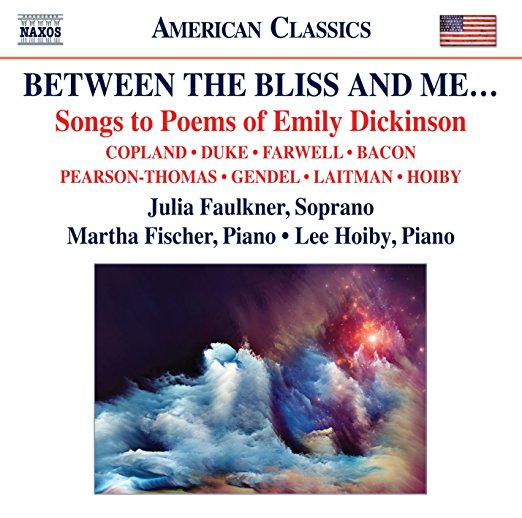
Between the Bliss and Me. . . Songs to Poems of Emily Dickinson
(Ernst Bacon, Aaron Copland, John Woods Duke, Arthur Farwell, Lee Hoiby, Lori Laitman and Richard Pearson Thomas)
2009

Dvořák und seine Zeit
(Charles Wakefield Cadman, Arthur Farwell, Edward MacDowell and Charles Ives)
2004
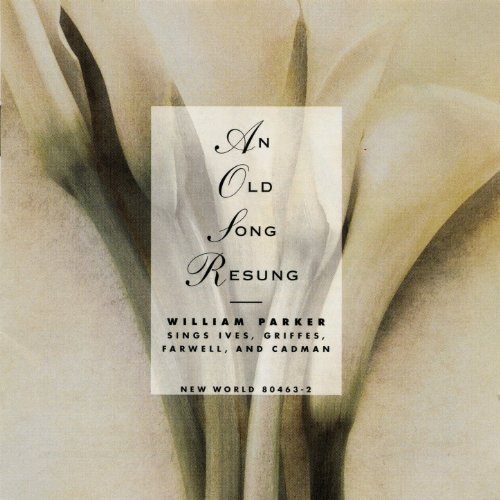
An Old Song Resung
(Charles Wakefield Cadman, Arthur Farwell, Charles Ives and Charles Griffes)
1980
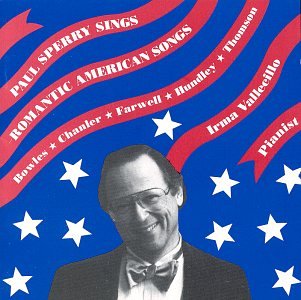
Paul Sperry Sings Romantic American Song
(Paul Bowles, Theodore Chanler, Arthur Farwell, Richard Hundley and Virgil Thomson)
1995
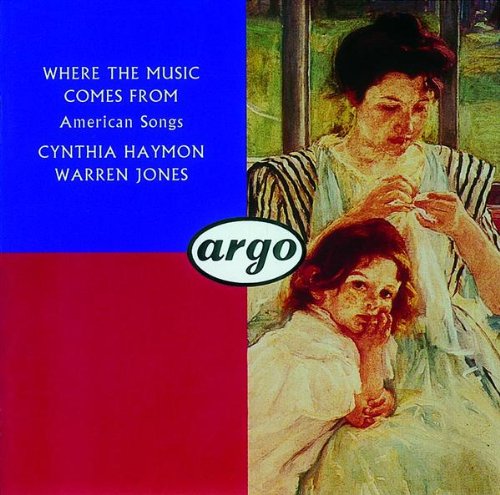
Where the Music Comes From
(Lee Hoiby, Celius Dougherty, Ned Rorem, Henry T. Burleigh, Samuel Barber, Arthur Farwell and Charles Griffes)
1991
Books
Sheet Music
Arthur Farwell Sheet Music
Buy via Classical Vocal ReprintsArthur Farwell Sheet Music
Buy via Music Sales ClassicalArthur Farwell Sheet Music
(Emily Dickinson songs)
Buy via Boosey & HawkesIMSLP: Arthur Farwell Sheet Music
Find via IMSLPThirty-Four Songs on Poems of Emily Dickinson, Vol. 1
Composer(s): Arthur Farwell
Buy via Boosey & HawkesThirty-Four Songs on Poems by Emily Dickinson, Vol. 2
Composer(s): Arthur Farwell
Buy via Boosey & Hawkes

